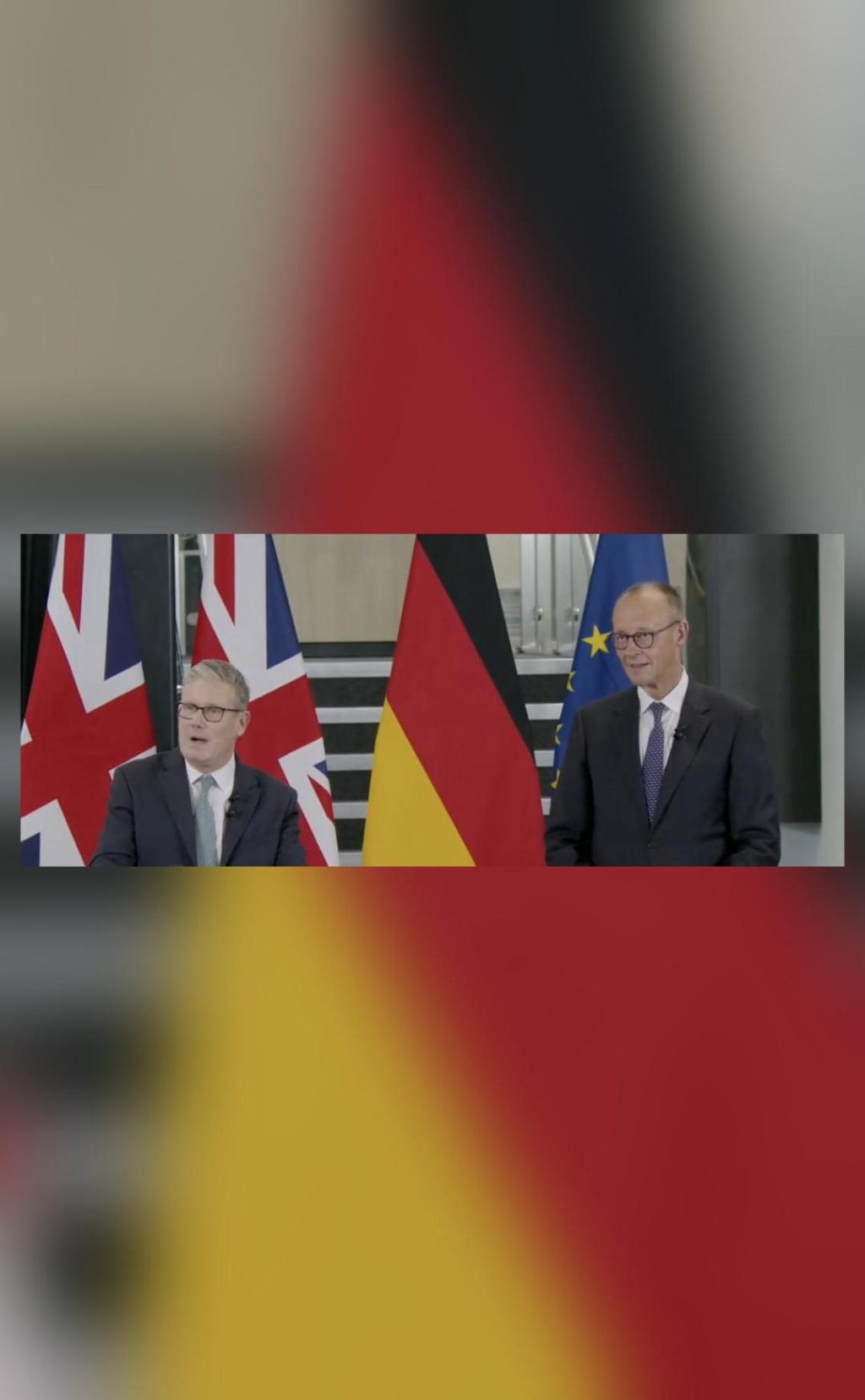
UK, Germany Sign Treaty to Enhance Defence & Migration Cooperation
In a significant move, British Prime Minister Keir Starmer and German Chancellor Friedrich Merz signed a treaty on Thursday, marking a new chapter in the long-standing friendship between the two nations. The treaty, signed 80 years after the end of World War II, aims to deepen cooperation in defence, economic, and migration matters.
The treaty, dubbed the “Friendship Treaty,” is a significant development in the wake of various challenges facing both countries, including the ongoing Ukraine-Russia conflict, rising tensions in the Indo-Pacific region, and the ongoing migration crisis. The pact underscores the commitment of both nations to strengthening their partnership and working together to address the complex issues of the 21st century.
Defence Cooperation
The treaty’s defence component is designed to enhance cooperation between the UK and Germany in areas such as military technology, cybersecurity, and joint exercises. The agreement will also facilitate the exchange of personnel and intelligence, allowing both nations to share expertise and best practices.
In a statement, Prime Minister Starmer emphasized the importance of the treaty in promoting stability and security in Europe. “Today, we are taking a major step forward in our partnership with Germany, one that will help us to address the challenges of the 21st century and promote peace and stability in Europe,” he said.
Chancellor Merz echoed Starmer’s sentiments, noting that the treaty marks a significant milestone in the history of German-British relations. “This treaty is a testament to the strength and resilience of our friendship, which has endured for centuries. It will enable us to work even more closely together to address the challenges we face, from defence and security to migration and economic cooperation,” he said.
Migration Cooperation
The treaty’s migration component is designed to address the ongoing crisis in the Mediterranean, where thousands of migrants and asylum seekers attempt to reach European shores every year. The agreement will see the UK and Germany work together to disrupt migrant smuggling networks and provide support to refugee camps in countries such as Libya and Egypt.
In a joint statement, both leaders emphasized the need for a comprehensive approach to migration, one that balances the need to protect human rights with the need to maintain public safety. “We recognize that migration is a global challenge that requires a global response. We are committed to working together to address the root causes of migration, while also ensuring that those who seek asylum are treated with dignity and respect,” they said.
Economic Cooperation
The treaty’s economic component is designed to boost trade and investment between the UK and Germany, two of the world’s largest economies. The agreement will see the establishment of a new direct rail connection between the two nations, which will facilitate the movement of goods and people.
In a statement, Chancellor Merz emphasized the importance of the treaty in promoting economic growth and jobs. “This treaty will enable us to work even more closely together to promote economic growth, create jobs, and increase trade between our two nations. It will also help us to address global challenges such as climate change and pandemics,” he said.
Conclusion
In conclusion, the UK-Germany Friendship Treaty is a significant development in the history of Anglo-German relations. The treaty’s defence, migration, and economic components will enable both nations to work together more closely to address the complex challenges of the 21st century.
As the world continues to face numerous threats, from cybersecurity attacks to pandemics and climate change, the UK and Germany are demonstrating their commitment to cooperation and collaboration. The treaty is a testament to the strength and resilience of their friendship, which has endured for centuries.
Source:



